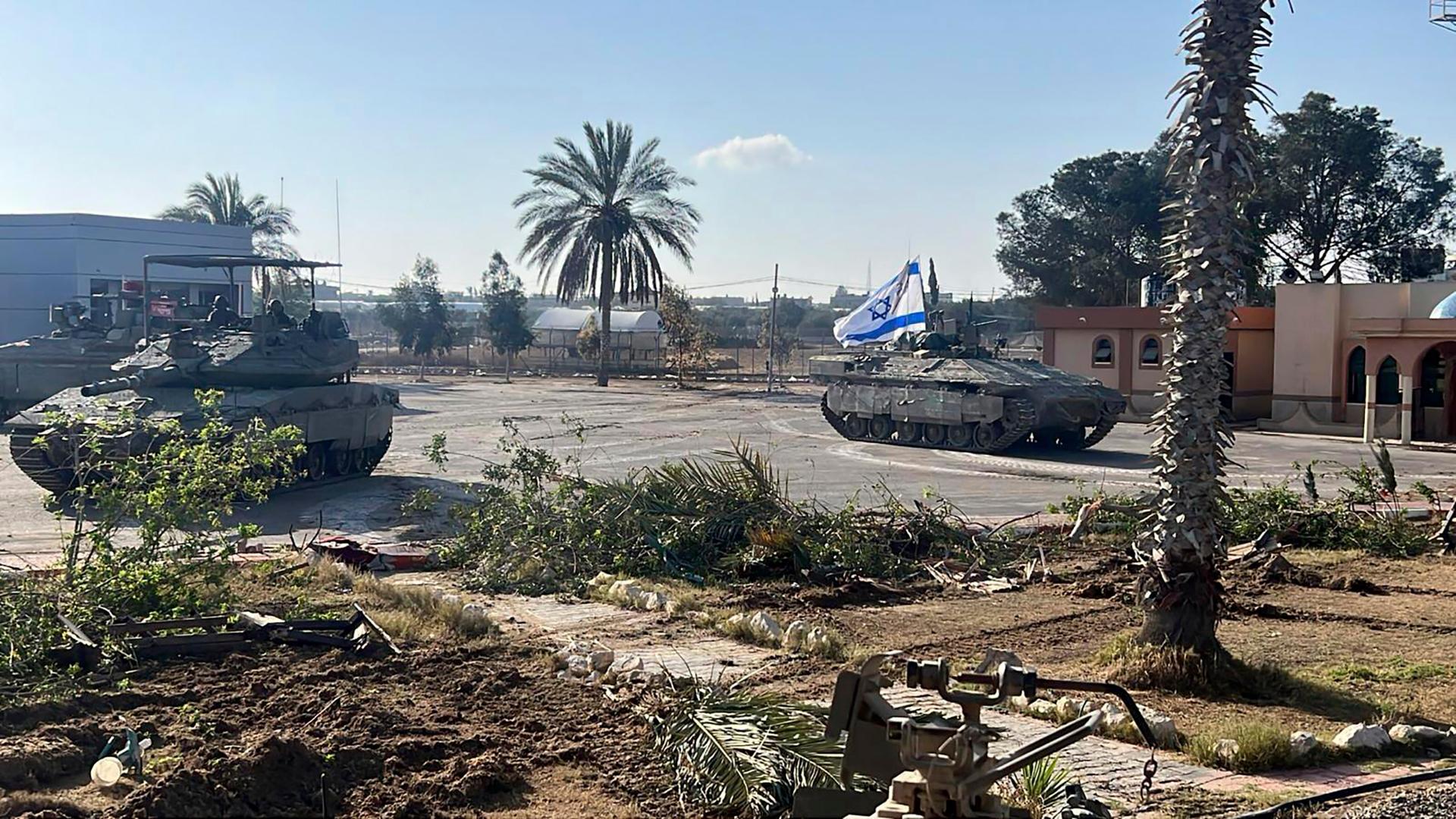Tanks were seen driving into a deserted terminal on the Gaza side of the Rafah border crossing with Egypt on Monday, according to a video released by the Israel Defense Forces.
The Israeli military seized control of the Rafah border crossing in the southern Gaza Strip late Monday night. Earlier that afternoon, Hamas leaders said they were willing to agree to a ceasefire and a hostage-prisoner exchange.
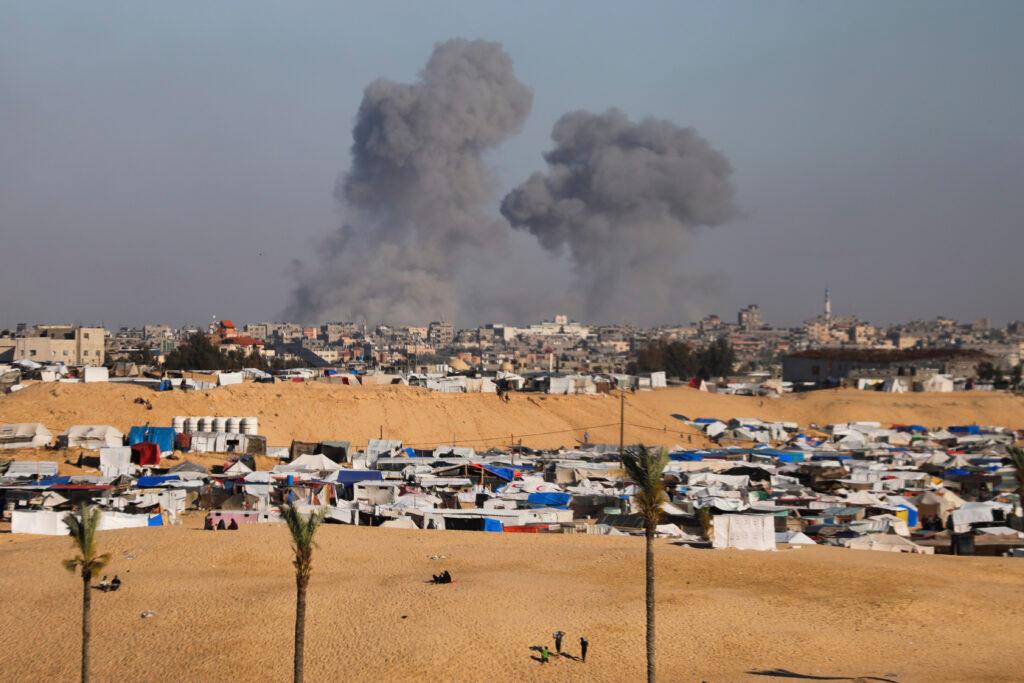
On Tuesday, Israel’s Prime Minister Benjamin Netanyahu said the offer from Hamas was meant to “disrupt” the Israeli military’s advance into Rafah.
“This did not happen,” Netanyahu said.
Israel’s defense minister Yoav Gallant, who visited troops near the Gaza border on Tuesday, said IDF operations in Rafah, “will not stop until Hamas is eliminated in the area or the first hostage returns to Israel.”
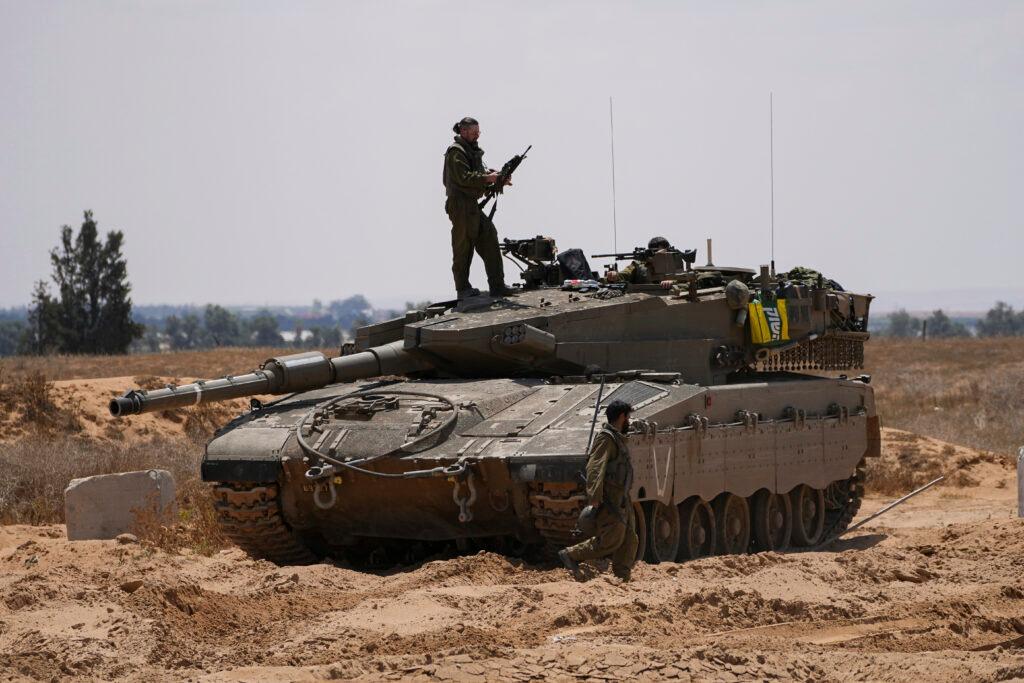
A voice on Israeli radio declared on Monday, “the Rafah crossing is in our hands,” an historic reference to 1967, when the IDF took control of the Temple Mount holy site in the Old City of Jerusalem.
“I’m not sure it’s a smart move to take [responsibility of] the crossing,” said Doron Avital, a former IDF special forces commander. “You can’t blame [anybody] if something doesn’t work in terms of humanitarian aid.”
Avital said the IDF appears to be prepared to carry out a major offensive in Rafah — but this might not be the plan. So far, the operation has been limited, and it could be a way to put more pressure on Hamas to free the remaining hostages.
After weeks of pulling its forces out of most of Gaza, Avital said the IDF is now in a risky position, and “Bibi” Netanyahu’s talk of a “total victory” in this war is unrealistic.
“You don’t win a war by killing all your enemy soldiers … because, you know, Hamas operates guerrilla warfare in places that we’ve been through — in the center and in the north … But it’s not like this is the end limit — [that] this is the holy grail of the whole campaign, and everything ends,” Avital said.
For many Palestinians in Gaza, the end of this war cannot come soon enough.
A Palestinian doctor at a hospital in Rafah told the New York Times that 27 bodies were brought there overnight, and over 150 people were injured.
Mohammad Abu Amra told the Associated Press that he lost his wife, brother, sister and niece who were killed in an Israeli airstrike.
“We did nothing,” Amra said. “We were sleeping peacefully. We don’t have wanted people. We don’t have Hamas. The house was turned upside down.”
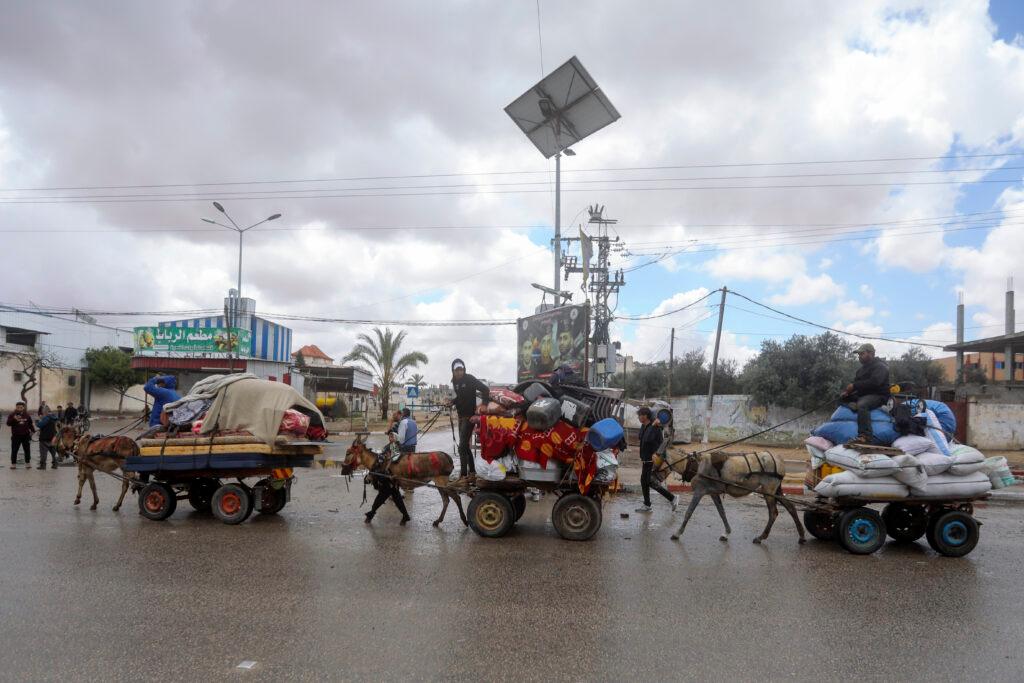
In Israel, the top concern for many people is the fate of the remaining hostages who have been held in Gaza now for 214 days.
Protests led by relatives of the hostages have continued for months.
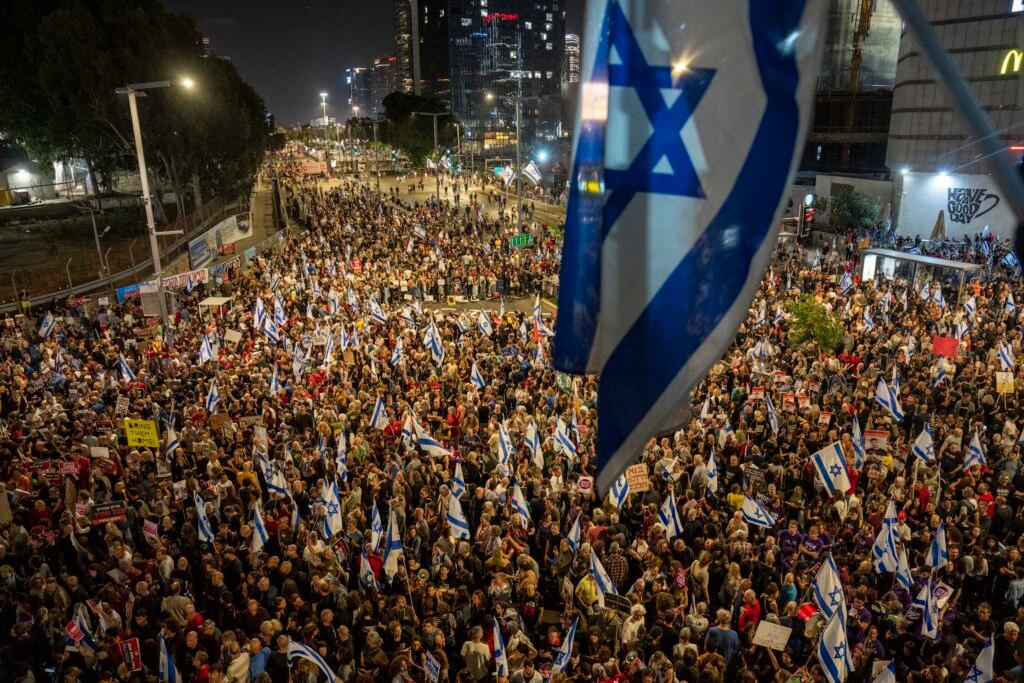
On Tuesday, demonstrators blocked a main road in central Tel Aviv, calling on the Israeli government to make a deal for a ceasefire and the return of the hostages.
There are about 130 captives still unaccounted for accounting to Israeli authorities. It remains unclear how many are still alive.
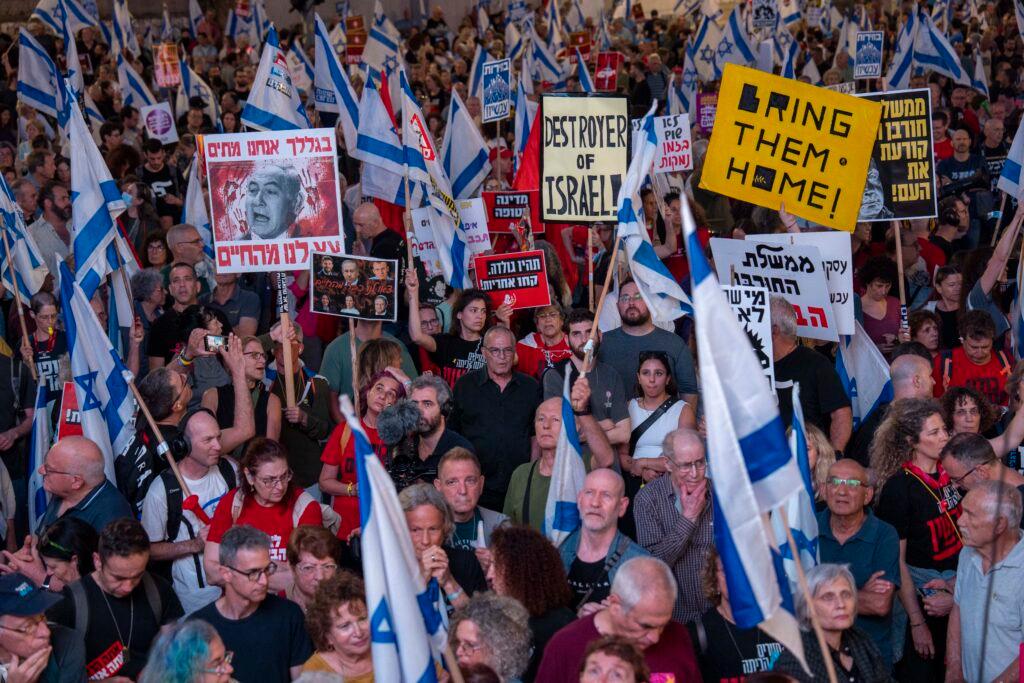
Israeli Maya Roman is trying to stay positive. She said her cousin was taken hostage on Oct. 7 and then released in November of 2023, during the first temporary ceasefire. But another relative, 39-year-old Carmel Gat, was also kidnapped and is believed to still be in Gaza.
“We’re happy to see that Israel is sending someone to Cairo to discuss the new details of the new deal. And, as long as the negotiations are continuing, we think that’s a good sign,” Roman told The World.
She said she hopes that the IDF operations in Rafah will be limited because a large-scale military invasion could put Gat and the other hostages in danger.
When news broke on Monday saying that Hamas was ready to agree to a ceasefire and hostage exchange, Roman said she tried to keep her expectations in check.
“We are dealing with a terrorist organization headed by someone like [Yayha] Sinwar.” In Israel, he was given the nickname “the butcher of Khan Younis,” she said.
“So you can never really trust anything,” she said, adding that it will be hard to believe anything until she sees her cousin alive.
Roman said she’s hoping that the US and the rest of the international community can bring enough pressure on Hamas to agree to a deal.
During a speech on Tuesday about antisemitism and the Holocaust, US President Joe Biden said that people are forgetting about the Hamas attack of Oct. 7 and the hostage-taking.
“I have not forgotten,” Biden said.
Our coverage reaches millions each week, but only a small fraction of listeners contribute to sustain our program. We still need 224 more people to donate $100 or $10/monthly to unlock our $67,000 match. Will you help us get there today?
